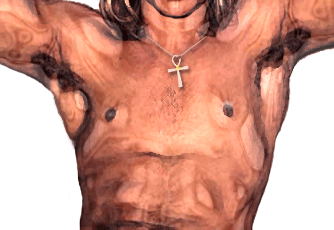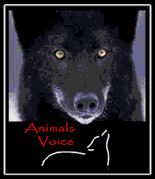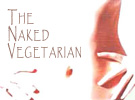The prophets and vegetarianism
Easter and Passover feasts celebrated around the world this month traditionally commemorate a more ancient Roman festival the Roman rites of Spring festival, planting, rebirth and renewal.

Most festival observations and holidays are reinterpreted from preceding cultures, reinvented to suite the prevailing times and passed along.
Purim, the observance of Jewish deliverance from the hand of Haman when Esther informed King Ahasuerus of the plan to rid Persia of the Jews, is one such commemorative event, Passover another, Roman celebrations of the Equinox and Christian observance of the resurrection of Christ combine to provide us the traditions we call Easter today. Added to the mix but appearing later in March and April are the spring festivals of the Northern European Teutonic tribes. Wiccans and other modern-day Neopagans continue to celebrate the Spring Equinox as one of their 8 yearly Sabbats (holy days of celebration).
The festivals of spring like all other celebrations build around the tradition of a meal or meals. The Jewish tradition of the seder service entails "karpas" (eating of greens) followed immediately by "yahatz" (the breaking of the middle matzah for later use as the "afikomen" (desert) stylizes the last supper and is based on God's original dietary law:
(Genesis 1:28 And God blessed them, and God said unto them, Be fruitful, and multiply, and replenish the earth, and subdue it: and have dominion over the fish of the sea, and over the fowl of the air, and over every living thing that moveth upon the earth.
1:29 And God said, Behold, I have given you every herb bearing seed, which is upon the face of all the earth, and every tree, in the which is the fruit of a tree yielding seed; to you it shall be for meat which, interestingly enough in its original meaning is only food (an offering of food, esp. of a cake made of flour with salt and oil. — To go to meat , to go to a meal. [Obs.] — To sit at meat , to sit at the table in taking food).
1:30 And to every beast of the earth, and to every fowl of the air, and to every thing that creepeth upon the earth, wherein there is life, I have given every green herb for meat: and it was so, implies that to all animals are given the herbs and only the herbs as food.
Considerable debate has risen around this interpretation of Genesis however there seems to be another clearer indication that early society ate a predominately vegetarian diet, economics. 2000 years ago a largely agrarian society had developed. Villages, towns and cities grew up around farming communities and trade routes. Farming was the principle occupation and the industry that supported society. An average farm family might have a few chickens or ducks, a goat and, if fortunate, a cow or two and a horse or donkey. The family would be vegetarian by default, eating your only cow would be something akin to a modern family eating their SUV, once it was gone it would be a great hardship to replace. Some well-to-do middlemen called wholesalers did manage to make living buying up the few excess whole farm animals for cash and retailing (dividing into smaller pieces) them to wealthy segments of society who could afford the markup and routinely add animal flesh to their table. But this was the exception and not the rule.
Now the question, was Jesus a vegetarian? might not ever be answered - sort of an urban legend for posterity - but the logical conclusion that vegetarianism is consistent with the underlying principles of Christianity, Buddhism and Mohammedanism can be easily inferred from the traditions associated with the ways of the prophets.
____________
For an Easter brunch menu see The Green Cutting Board Traditional Easter Recipies












<< Home